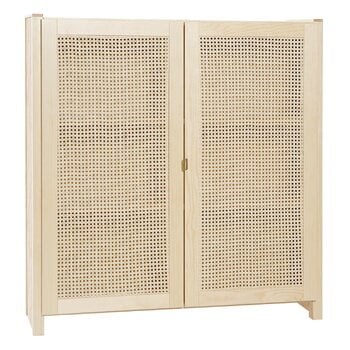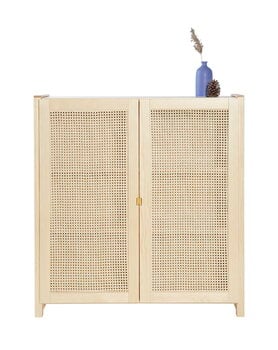The Lundia Classic cabinet combines a trendy yet timeless rattan weave with the quality of Finnish woodworking. The cabinet doors are adorned with light, natural rattan weave, behind which are two solid wood shelves. The doors are perfected with brass handles and soft-close hinges.
The rattan cabinet is part of the Lundia Classic range, and both its design and dimensions fit neatly together with the open shelves and other items of the Classic collection. The elegant cabinets can be used for storing tableware in the kitchen, books and decorative objects in the living room as well as toys in the nursery. Like other pieces of the Classic range, the rattan cabinet is made of slowly grown Finnish pinewood that makes it a strong, ecological and timeless icon of Finnish design. The rattan parts are handmade in Riihimäki, Finland.









